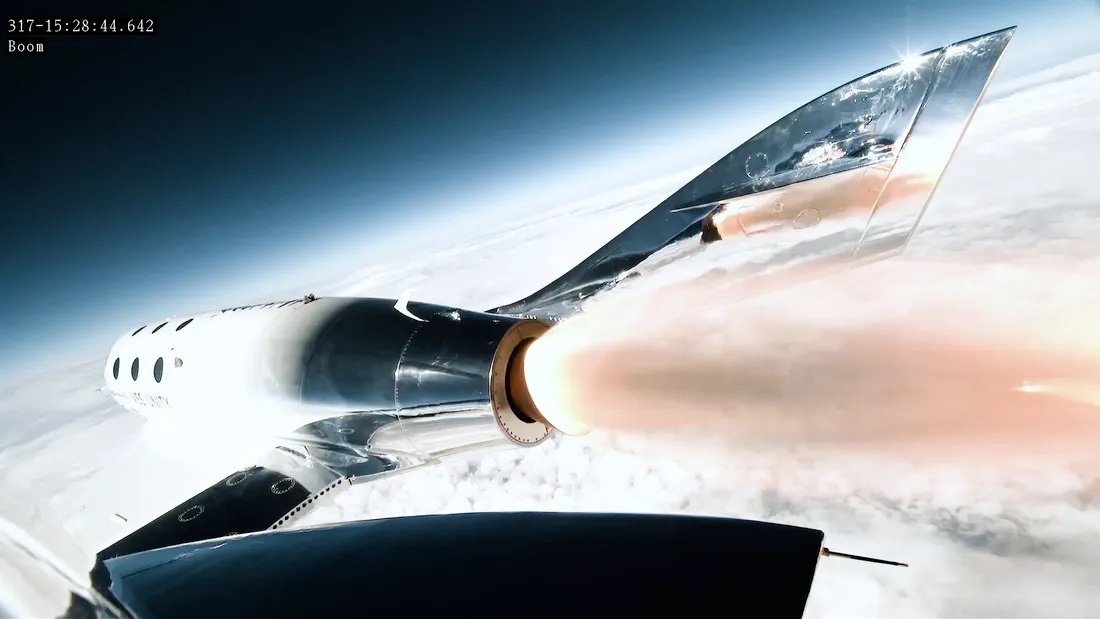17.07.2023

Virgin Galactic's VSS Unity suborbital spaceplane on its first commercial flight June 29. Credit: Virgin Galactic
WASHINGTON — As the House Science Committee considers a commercial space bill, industry officials advocated for key topics they believe should be included in that legislation.
A July 13 hearing by the committee offered the industry an opportunity to weigh in on topics they believe should be included in a commercial space package that the committee is developing, from commercial human spaceflight safety to oversight of emerging space activities.
Rep. Frank Lucas (R-Okla.), chair of the committee, said a theme of the legislation will be maintaining the competitiveness of the industry. “As this committee prepares to consider commercial space legislation, it’s imperative we keep U.S. international competitiveness at the top of our priorities,” he said in his opening statement. “Ensuring a robust commercial space sector is key to maintaining U.S. leadership in space and technology.”
One of the top issues is extending the current restriction on the Federal Aviation Administration’s ability to regulate safety for people who fly on commercial spacecraft. That restriction, often called the “learning period” by industry, was included in a 2004 commercial space act with the intent of allowing companies to gain experience upon which regulations could then be based.
The learning period was originally designed to last eight years but has been extended by subsequent legislation and is now due to expire Oct. 1. Many in the commercial spaceflight industry have been lobbying Congress for another extension, citing the slow pace of progress that has limited the experience companies have gained.
“CSF supports a multi-year extension of the learning period to enable key dialogues to continue between government and industry,” said Karina Drees, president of the Commercial Spaceflight Federation (CSF), at the hearing. “Allowing the learning period to end this year would lead to regulations that inadvertently freeze development before industry has had time to mature, harming safety and our nation’s competitiveness in the long term.”
One key member, while not explicitly opposed to an extension of the learning period, did appear concerned about safety. “We have an obligation to ensure spaceflight safety,” said Rep. Eric Sorensen (D-Ill.), ranking member of the space subcommittee.
Drees argued an end of the learning period would hinder safety. “If we start developing that regulatory environment too soon, before we have enough data, before we have enough knowledge of those individual vehicles, there is a long-term safety risk that something could go wrong.”
“Instead of learning from our mistakes, we need to make sure we’re using science to not make mistakes in the first place,” Sorensen responded.
Another priority for industry is establishing a “mission authorization” system for regulating commercial space activities not overseen by agencies today in order to comply with the Outer Space Treaty’s requirement for authorization and continuing supervision of space activities.
While the National Space Council is developing a proposal for mission authorization, some witnesses said that responsibility should go to the Office of Space Commerce in the Commerce Department. “It’s similar to the way other countries have structured it, where they’re thinking about those activities in regards to their economic contribution and the potential for economic growth,” said Caryn Schenewerk, president of CS Consulting.
Josef Koller, systems director for The Aerospace Corporation’s Center for Space Policy and Strategy, said a mission authorization system would also be important for human spaceflight, since any ability by the FAA to regulate commercial human spaceflight safety would be limited to launch and reentry. “Just like commercial aviation benefits from a single oversight agency, commercial human spaceflight would do the same,” he said.
Jim Dunstan, general counsel for technology think tank TechFreedom, opposed giving that authority to other agencies like the FAA or Federal Communications Commission. While the FCC has expertise in spectrum, he argued, it lacked knowledge in other satellite issues. “To put more on their plate on areas they’re going to have to come up to speed on, I think is going to slow those activities down.”
Other issues raised at the hearing included broader regulatory reform in areas such as launch and commercial remote sensing. Witnesses noted that while FAA enacted a “streamlined” set of launch licensing regulations, called Part 450, more than two years ago, industry is still struggling with aspects of the new rules.
The FAA’s Commercial Space Transportation Advisory Committee (COMSTAC) approved at a July 11 meeting a set of recommendations for the FAA to improve the Part 450 licensing process. “Those recommendations do call upon the FAA to address specific aspects of Part 450 that are proving problematic,” said Schenewerk, who chairs COMSTAC’s regulatory working group.
Drees said the CSF also backed proposals to restore a spaceport infrastructure grant program for commercial launch sites, which was briefly funded from 2010 to 2012. That, she argued, would give spaceports access to grant funding to build up capabilities that could reduce the burden on federal launch sites.
House members have not offered a schedule for introducing a commercial space bill or confirmed what it might include. Lucas was publicly neutral on the learning period issue, for example, saying only that Congress must determine if the current state of the industry required an extension.
“Our legislation must be carefully written and executed to create a favorable environment here at home,” he said, “and prevent U.S. companies from turning to overseas destinations that promise speedy authorizations with minimal restrictions.”
Quelle: SN
